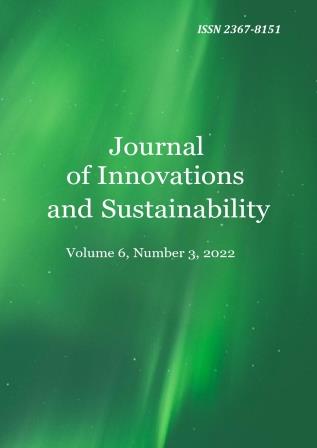Організаційно-економічні основи управління проєктами землевпорядкувань агробізнесу щодо забезпечення сталості агроекосистем
Organizational and economic basis of management projects of land planning in agribusiness to ensure the sustainable of agroecosystems
Author(s): Yevhenii UlkoSubject(s): Economy, Business Economy / Management, Agriculture
Published by: Сдружение „Академия за иновации и устойчивост“
Keywords: agribusiness; agro-ecosystem; land planning; organizational and economic mechanism; crop rotation; sustainability; management of land (soil) resources.
Summary/Abstract: Purpose. The obtained materials and formulated ideas and proposals presented in this article are the results of a research that was conducted with the aim of deepening the organizational and economic basis management projects land planning the agribusiness to sustainability of agro-ecosystems.Results. The key factors of the negative situation with the use of soils, which are associated with a decrease in their quality characteristics, the spread of degradation processes, the presence of ineffective mechanisms for regulating ecologically oriented land use, and the insufficient implementation of land conservation and protection projects, are summarized. The key in the mentioned problem is the need to develop and adhere to the strategy of sustainable development of land resources, the implementation of which consists to a large extent in the improvement of organizational and economic conditions and the institutional environment, improvement of the economic mechanism of the agrarian sector for more complete use of the opportunities and advantages of land management and land management of agribusiness. Priority project measures in the direction of achieving neutral level degradation lands (NLDL) have been identified as a significant task for ensuring the sustainable development of agro-ecosystems, which involves taking into account the assets of agronomic, soil science, ecological and economic sciences to form at least tentatively model crop rotations with mainly commercial cultivation of agricultural crops, for example in conditions of steppe zone for agribusiness, primarily for small and middle sizes, grain and grain-oil directly of specialization, where the mechanism of restoring soil organic matter is substantiated and shown, as well as the conditions for achieving a deficit-free humus balance, taking into account simulated erosion and deflation processes.Scientific novelty. Scientifically based approaches have been developed to ensure an important part of achieving the sustainable development of land (soil) resource management and land use based on the coordination of various processes of forming a deficit-free balance of humus and sources of its sustainable recovery by means of agribusiness land management. Methodical approaches to structural blocks have been developed, among which are the design of yield (i) and the calculation of the humus balance (ii) during the development of project tasks and their assessment of the choice in a way of combining various methods related to the economic evaluation of land, in particular, developing approaches based on income methods.Practical value. It has gained importance in such areas as scientific, institutional, legislative, and industrial. It was found that the existing methodical approaches to determining the balance of humus without a deficit have a number of problem areas, and directions for their improvement (updating) are given. The legislative bases also has shortcomings in the matter of regulation of regulatory requirements for crop rotation, which can ensure balanced land use. Therefore, in order to achieve the sustainable development of agro-ecosystems of agribusiness, it is necessary to get rid of legislative contradictions and institutional traps, to clearly regulate specific requirements that are means of land planning, strengthening legal acts on land protection and monitoring of their condition. For agribusiness, the biologicalization of agricultural production and the development of approximate crop rotation models prove the possibility of ensuring a deficit-free balance of humus and land conservation even in the conditions of implementing short-rotational crop rotations, but in compliance with scientific and legal recommendations and requirements.
Journal: Journal of Innovations and Sustainability
- Issue Year: 6/2022
- Issue No: 3
- Page Range: 1-36
- Page Count: 36
- Language: Ukrainian

